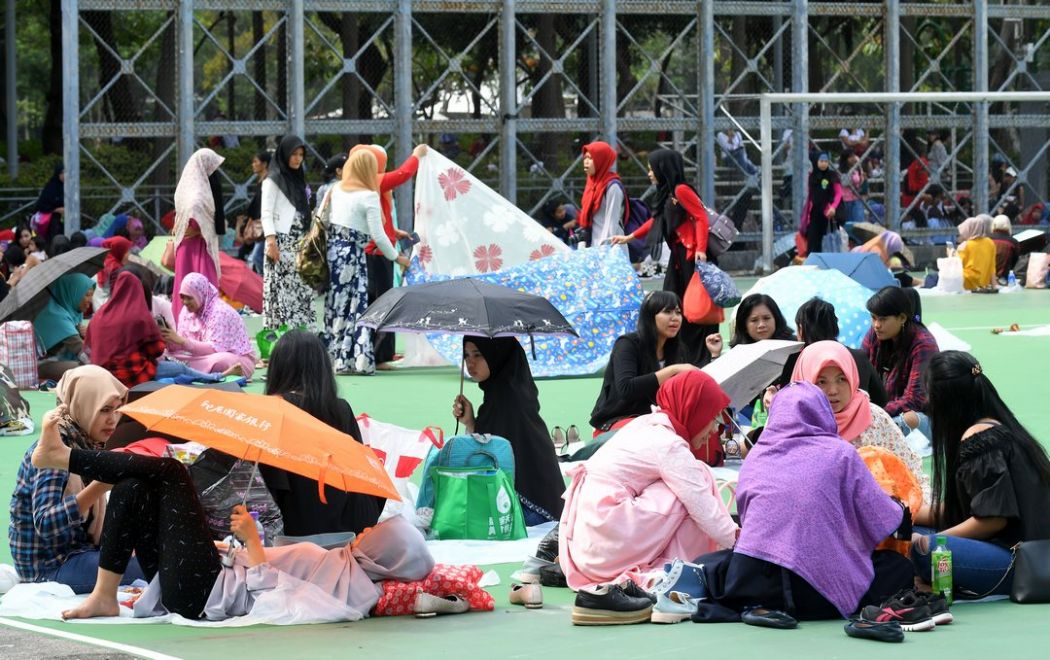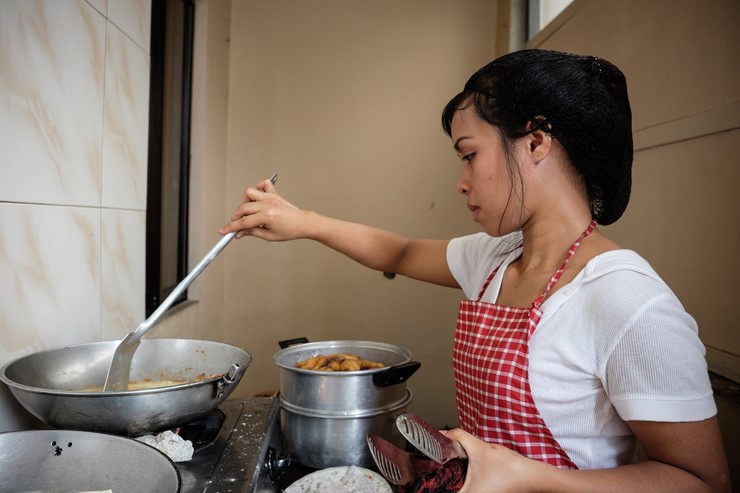A report from trade union Hong Kong Federation of Asian Domestic Workers Union (FADWU) has raised concerns about exploitative practices by some local domestic worker employment agencies.
According to the study published on Saturday, 96 per cent of interviewees’ employment agencies did not comply with key elements of the Code of Practice introduced by the Hong Kong Labour Department last January. It included workers being charged excessive fees by agencies, having personal documents confiscated and workers being given inadequate resting hours.

Excessive agency fees
The study found that 57 per cent of interviewees were charged illegal agency fees, averaging a total of HK$9,013 each over four and a half months, over 20 times the maximum chargeable fee (HK$441). It did not specify what these charges were for. The current minimum wage in Hong Kong for domestic workers is HK$4,410.
It also said that 30 per cent of interviewees were charged in advance of receiving their first month’s salary, despite the Code of Practice stipulating that workers will only be charged after receiving their first month’s wage packet.
As of April 2018, Hong Kong employs nearly 380,000 migrant domestic workers – making up 9 per cent of its working population – the majority of whom are Filipino and Indonesian. The study involved 452 interviewees – 381 from the Philippines and 71 from Indonesia.

Personal documents withheld
A quarter of interviewees had personal documents taken away either before or since taking up their current job, according to the report.
It cited an Indonesian migrant domestic worker, Anik, who had her passport confiscated by her employer in June 2016 meaning she could not open a bank account; she was then ordered to pay HK$2,410 in monthly agency fees for six months. When Anik wanted to terminate her contract in August 2017, her employer refused. As her employer had her passport, she felt that she had no choice but to remain, the report said.
Additionally, a tenth of interviewees said that they experienced different terms or conditions of employment than originally promised by their agency.

Inadequate rest hours
The report found that although 98 per cent of those interviewed said that they were given one day of rest per week, 85 per cent said that they did not receive the full 24 hours required by law.
It comes after activists marched to the Central Government Offices on Thursday demanding that the government amend contracts to ensure better accommodation and rest hours for migrant domestic workers.
Since 2003, domestic workers are required to live with their employers in Hong Kong in “suitable” accommodation. Domestic workers’ rights groups have said that this rule leaves workers vulnerable to exploitation and call for better regulations, as well as the option to “live out.”
Hong Kong has a “two-week rule” that requires a domestic worker to find a new job or leave Hong Kong within a fortnight of a contract’s termination. However, visa procedures can take a month to complete.
The trade union wrote: “The Two-Week Rule makes migrant domestic workers very reluctant to make a complaint or leave their employer because if they do, they are likely to lose their right to work in Hong Kong, which in turn would make it impossible for them to repay their debts and/or support their families through remittances.”

In March 2018, the government announced plans to tackle the exploitation of migrant domestic workers, including appointing teams dedicated to migrant domestic worker cases and opening a hotline for victims.
In a press release in March, a government spokesperson said: “Whilst FDHs [Foreign domestic helpers] are fully protected under Hong Kong’s labour laws… to prevent them from falling victim to exploitation, we also take the opportunity to develop new measures for enhancing the protection of FDHs. Noting that our community fully appreciates the contribution of FDHs, the Action Plan includes measures for enhancing their protection to prevent them from falling victim to exploitation.”
